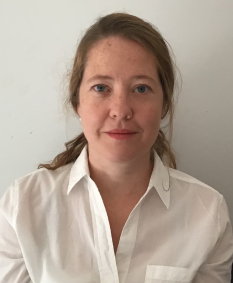Marie-Odile Melançon
M. Sc. in urban studies, 2019
Division Manager - Service de la Culture, Ville de Montréal
“INRS is a small university in terms of size, but it has a global outlook and that is a strength. The rigour of the analysis of research work is something that I was able to really develop at the UCS centre, as well as the issues linked to the field of culture.”
Marie-Odile Melançon is passionate about the various social science disciplines, as well as the arts and humanities, and shares with us her affection for culture, the city and INRS.
Initially, Marie-Odile Melançon was destined for a career in science, but her undeniable interest in the arts and social sciences led her to pursue this path, a true passion for her. Her interests have also changed over time, and Marie-Odile has taken the opportunity to explore several disciplines. Indeed, after obtaining a bachelor’s degree in arts and sciences and a master’s degree in history, Marie-Odile went on to perfect her skills with a certificate in multi-ethnic intervention and a minor in dramaturgy. Her final choice was to study issues related to the integration of culture in urban environments, which she undertook at the Institut national de la recherche scientifique (INRS).
By her own admission, she describes herself as a true devotee of classical and literary studies, history, drama, issues of inclusion and intercultural relations, and takes great pleasure in discovering new knowledge. She is particularly interested in the role that culture plays in a city and in forging its collective identity. She therefore decided to undertake a second master’s degree in Urban Studies at the Urbanisation Culture Société Research Centre (UCS) under the supervision of Professor Christian Poirier, whose research interests include cultural and civic participation, and Professor Annick Germain, who is interested in the sociological understanding of urban phenomena.
"What really interested me the most was the links between the city and culture, and more specifically the question of the social cohesion that culture fosters when cities plan ahead for its integration. Culture plays an essential role in a city, as much on the social level, its mix and neighbourhood life among others, as on the economic level and its dynamism." she explains.
What Marie-Odile was looking for above all was to have a more cross-disciplinary perspective and to open her horizons, and this is what she feels she found at INRS. "My experience at INRS was a rich one for me, at every level. As I was doing my master's while working for the City of Montréal, what I particularly appreciated was the reflexive posture this experience gave me, which enabled me to step back from the projects I was working on. INRS is a small university in terms of size, but it has a projected view of the world, and that's a strength. The rigorous analysis of research work is something I've really been able to develop at UCS, as well as the issues involved in the field of culture". She goes on to share that she very quickly felt well equipped thanks to her apprenticeships and the rigor of scientific research, and that this has had a great impact on the evolution of her career, largely attributing the development of her professional skills to the training she acquired at INRS.
Today, Marie-Odile is a manager with the City of Montréal, with over twenty years' experience in cultural development throughout the city and in making the arts and culture accessible to all, notably through the network of Maisons de la culture. She is tirelessly motivated to make the city ever more vibrant, inclusive and meaningful for its citizens, and actively collaborates in research groups as a city partner in Villes Régions Monde (VRM) and the Observatoire des médiations culturelles (OMEQ), which enables her to continue collaborating with her former INRS professors. "In the future, I'd like to continue to have a link with university research while holding down my position at the city," she adds.
And her wish for the future? She'd like to see even stronger links between culture and urban planning, among other things, but also in all aspects of city planning. To see culture as an essential vector of development when we think about the city's future, and for culture to be present from the outset of planning for our collective well-being. "In short, a city's identity depends a great deal on culture. It's an essential pillar in making a city dynamic, vibrant, and fulfilling," she concludes.
[As told to the Foundation in May 2023.]

